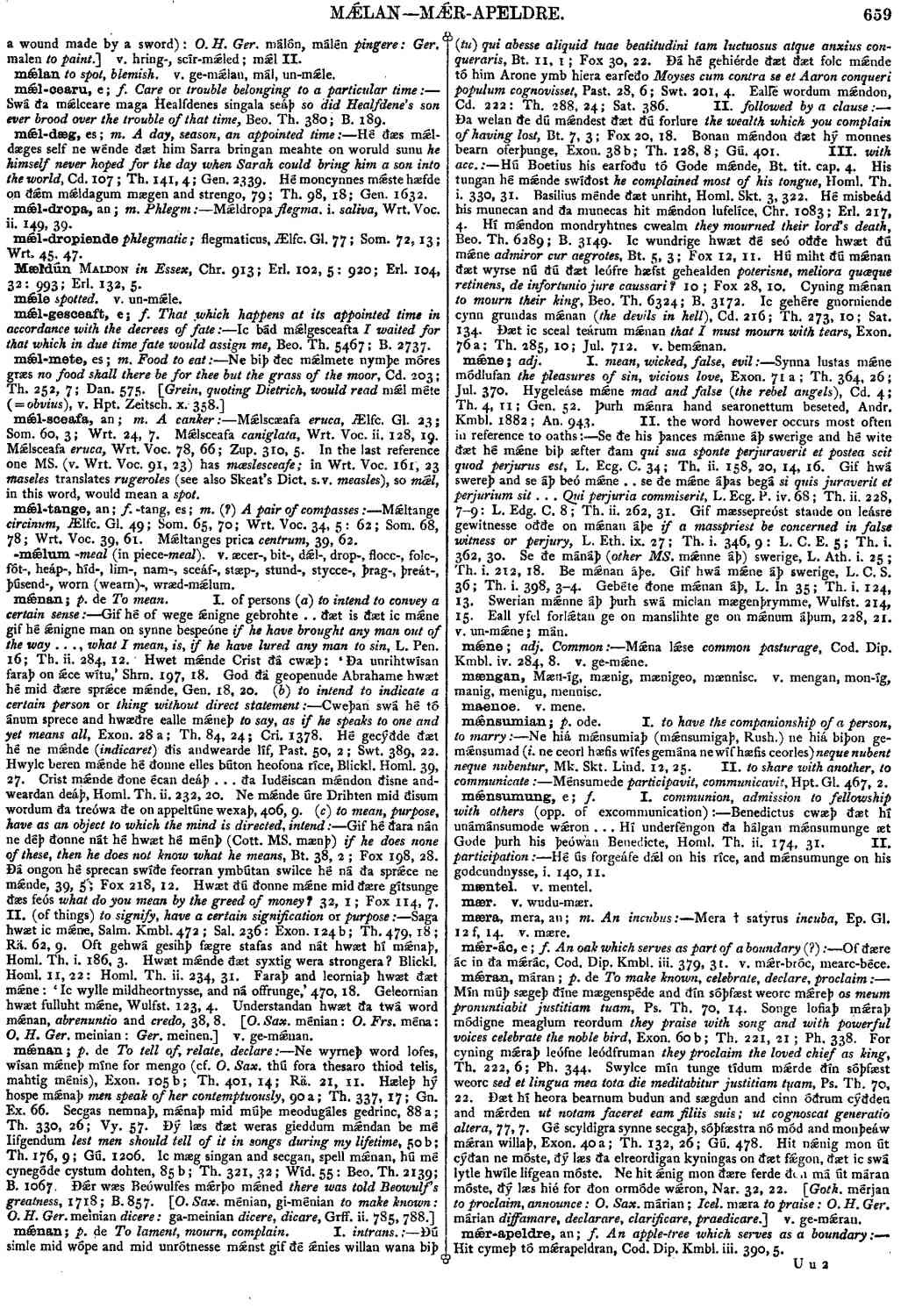mǽnan
- verb [ weak ]
-
Ðú simle mid wópe and mid unrótnesse mǽnst gif ðé ǽnies willan wana biþ
(tu) qui abesse aliquid tuae beatitudini tam luctuosus atque anxius conqueraris,
- Bt. 11, 1 ;
- Fox 30, 22.
-
Ðá hé gehiérde ðæt ðæt folc mǽnde tó him Arone ymb hiera earfeðo
Moyses cum contra se et Aaron conqueri populum cognovisset,
- Past. 28, 6 ;
- Swt. 201, 4.
-
Ealle wordum mǽndon,
- Cd. 222: Th. 288, 24 ;
- Sae. 386.
-
Ða welan ðe dú mǽndest ðæt ðú forlure
the wealth which you complain of having lost,
- Bt. 7, 3 ;
- Fox 20, 18.
-
Bonan mǽndon ðæt hý monnes bearn oferþunge,
- Exon. 38b ;
- Th. 128, 8 ;
- Gú. 401.
-
Hú Boetius his earfoðu tó Gode mǽnde,
- Bt. tit. cap. 4.
-
His tungan hé mǽnde swíðost
he complained most of his tongue,
- Homl. Th. i. 330, 31.
-
Basilius ménde ðæt unriht,
- Homl. Skt. 3, 322.
-
Hé misbeád his munecan and ða munecas hit mǽndon lufelíce,
- Chr. 1083 ;
- Erl. 217, 4.
-
Hí mǽndon mondryhtnes cwealm
they mourned their lord's death,
- Beo. Th. 6289 ;
- B. 3149.
-
Ic wundrige hwæt ðé seó oððe hwæt ðú mǽne
admiror cur aegrotes.
- Bt. 5, 3 ;
- Fox 12, 11.
-
Hú miht ðú mǽnan ðæt wyrse nú ðú ðæt leófre hæfst gehealden
poterisne, meliora quæque retinens, de infortunio jure caussari?
- 10 ;
- Fox 28, 10.
-
Cyning mǽnan
to mourn their king.
- Beo. Th. 6324 ;
- B. 3172.
-
Ic gehére gnorniende cynn grundas mǽnan (
the devils in hell),
- Cd. 216 ;
- Th. 273, 10 ;
- Sat. 134.
-
Ðæt ic sceal teárum mǽnan
that I must mourn with tears.
- Exon. 76a ;
- Th. 285, 10 ;
- Jul. 712.
Bosworth, Joseph. “mǽnan.” In An Anglo-Saxon Dictionary Online, edited by Thomas Northcote Toller, Christ Sean, and Ondřej Tichy. Prague: Faculty of Arts, Charles University, 2014. https://bosworthtoller.com/22156.
Checked: 1